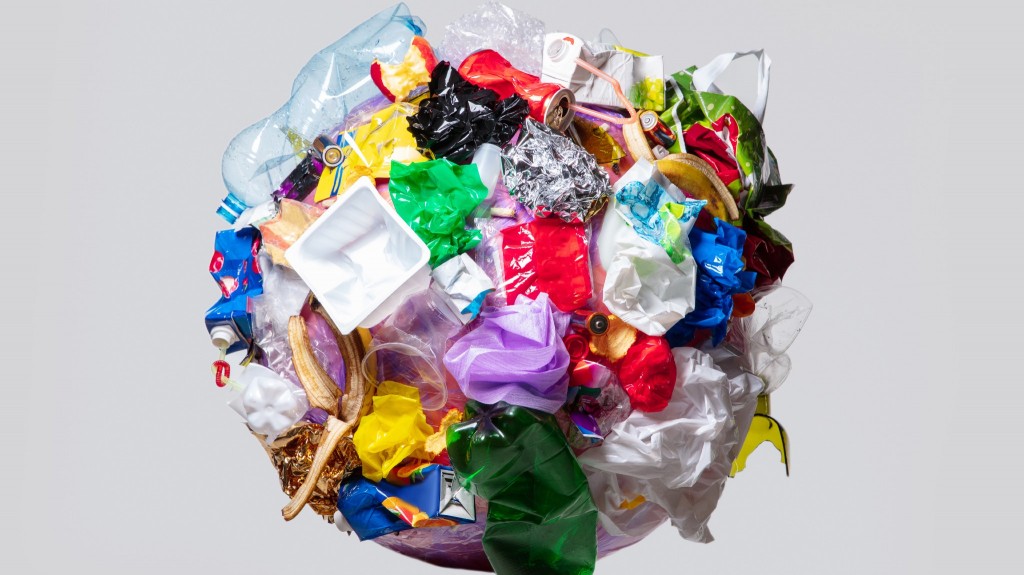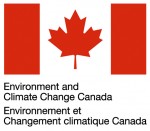How Canada is working to achieve zero plastic waste by 2030
Plan includes banning harmful single-use plastic items like bags and straws

Every year, Canadians throw away three million tonnes of plastic waste, only nine percent of which is recycled, meaning the vast majority of plastics end up in landfills and about 29,000 tonnes finds its way into the natural environment.
The next steps in the Government of Canada's plan to achieve zero plastic waste by 2030 is a ban on harmful single-use plastic items where there is evidence that they are found in the environment, are often not recycled, and have readily available alternatives. Based on those criteria, the six items the Government proposes to ban are plastic checkout bags, straws, stir sticks, six-pack rings, cutlery, and food ware made from hard-to-recycle plastics.
The Government of Canada is collaborating with provinces and territories through the Canadian Council of Ministers of the Environment. Together, all federal, provincial, and territorial governments agreed to the Canada-wide Strategy on Zero Plastic Waste that lays out a vision for a circular economy for plastics, as well as a two-phase action plan that is being jointly implemented. Provinces, territories, and municipalities are leaders in the recovery and recycling of plastic waste.
The Government of Canada is continuing to work with them to strengthen existing programs and increase Canada's capacity to reuse and recover more plastics. This will include collaborating with them to develop pan-Canadian targets to ensure that rules are consistent and transparent across the country, and make producers and sellers of plastic products responsible for collecting them.
Minister Wilkinson also announced over $2 million through the Zero Plastic Waste Initiative for 14 new Canadian-led plastic reduction initiatives. These projects are led by communities, organizations, and institutions, and will promote the development of new and innovative solutions to prevent, capture, and remove plastic pollution from the environment.
Below are the regional initiatives being taken by the Government of Canada.
Quebec
Peter Schiefke, Parliamentary Secretary to the Minister of Environment and Climate Change, has announced Canada's investment of $205,000 to support Nature-Action Québec Inc.'s plastic pollution reduction project through the Zero Plastic Waste Initiative. The project will reduce plastic pollution by installing waste capture nets at municipal sewer outlets and remove litter before it enters the water and raise community awareness about plastic pollution.
Through the Zero Plastic Waste Initiative, Environment and Climate Change Canada is investing about $2 million in support of new projects to implement innovative community solutions across Canada. These projects will lead to a measurable reduction of plastic pollution in Canada and support a circular economy.
Ontario
The Minister of International Development, the Honourable Karina Gould, has announced Canada's investment of $555,000 to support three new projects in Ontario through the Zero Plastic Waste Initiative. This funding will support the development of new innovative solutions that prevent, capture, and remove plastic pollution and inform sustainable consumer actions. The organizations receiving funding are as follows:
- Carleton University will identify and pilot solutions to detect and remove microplastics from wastewater systems
- Georgian Bay Forever will trial innovative technologies to capture plastics from entering the water from various point sources and expand citizen awareness of plastic pollution
- University of Windsor will evaluate sustainable mechanisms to remove microplastics from biosolids and promote the uptake of effective methods with key stakeholders
The Prairies
The Parliamentary Secretary to the Minister of Environment and Climate Change (Canada Water Agency), Terry Duguid, has announced Canada's investment of $330,000 to support three new projects in the Prairies through the Zero Plastic Waste Initiative. This funding will support the development of new innovative solutions that prevent, capture, and remove plastic pollution and inform sustainable consumer actions.
The organizations receiving funding are the following:
- Nativus Energy Ltd will work with the Lake St. Martin First Nation community to determine community specific strategies for increased collection and diversion of plastic waste
- Wicehtowak Limnos Consulting Services Ltd. will develop a plastic waste management program in conjunction with the George Gordon First Nation
- Alberta Plastics Recycling Association will gather data about the amount and types of plastic pollution created from industries and municipalities in the Edmonton Capital Region to help support waste reduction strategies moving forward
Atlantic Canada
The Minister of Fisheries, Oceans and the Canadian Coast Guard, the Honourable Bernadette Jordan, announced Canada's investment of over $270,000 to support four new projects in Nova Scotia and Newfoundland and Labrador through the Zero Plastic Waste Initiative.
This funding will support the development of new innovative solutions that prevent, capture and remove plastic pollution and inform sustainable consumer actions. The organizations receiving funding include:
- The Cape Breton Atlantic Coastal Action Program will explore environmentally responsible and cost-effective alternatives for local food packaging
- International Fund for Animal Welfare Inc. will develop best practices and remove marine plastic litter in Newfoundland harbours
- Municipality of the County of Victoria will identify innovative and customized solutions to target local plastic waste and pollution
- TGM Tours Inc. will identify and trial approaches to reduce plastic waste and pollution and advance a circular economy in the Gros Morne Region



